Financial technology
Aperçu des sections
-
-
This course explores the rapidly evolving field of Financial Technology (FinTech) and its impact on the financial industry. Students will gain insights into digital banking, blockchain, cryptocurrencies, InsurTech, and data-driven financial decision-making. The course will also cover the economic, statistical, and cybersecurity aspects of FinTech, providing a comprehensive understanding of modern financial innovations and challenges
Course Information
📌 Course Title: FinTech & Digital Finance
📅 Program & Level: Master 2 EGE
📖 Semester: 3rd Semester (2024-2025)
🏫 Institution: University of Tlemcen, faculty of Economics
👨🏫 Instructor: Dr. Hadjer Boulila
-
-
-
This document introduces the fundamental concepts of Financial Technology (FinTech) and Digital Finance, covering its definition, evolution, key areas, importance, and challenges.
-
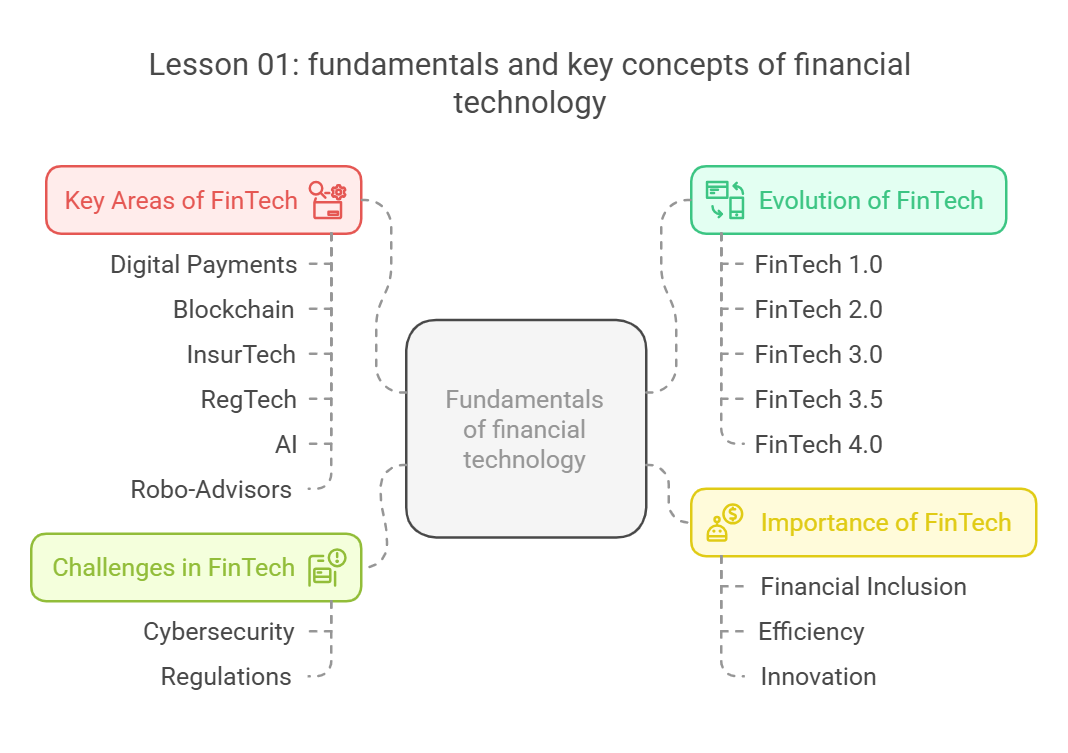
-
-
-
This lesson provides an in-depth introduction to blockchain technology and its role in the cryptocurrency ecosystem. Students will learn about the core principles of blockchain, including decentralization, cryptographic security, and consensus mechanisms. The lesson also explores key blockchain applications in finance, such as cross-border payments, decentralized finance (DeFi), and smart contracts.
Additionally, major cryptocurrencies like Bitcoin (BTC), Ethereum (ETH), and Tether (USDT) are analyzed, along with their use cases. Security considerations, regulatory challenges, and risks (such as volatility and cybersecurity threats) will also be covered.
-
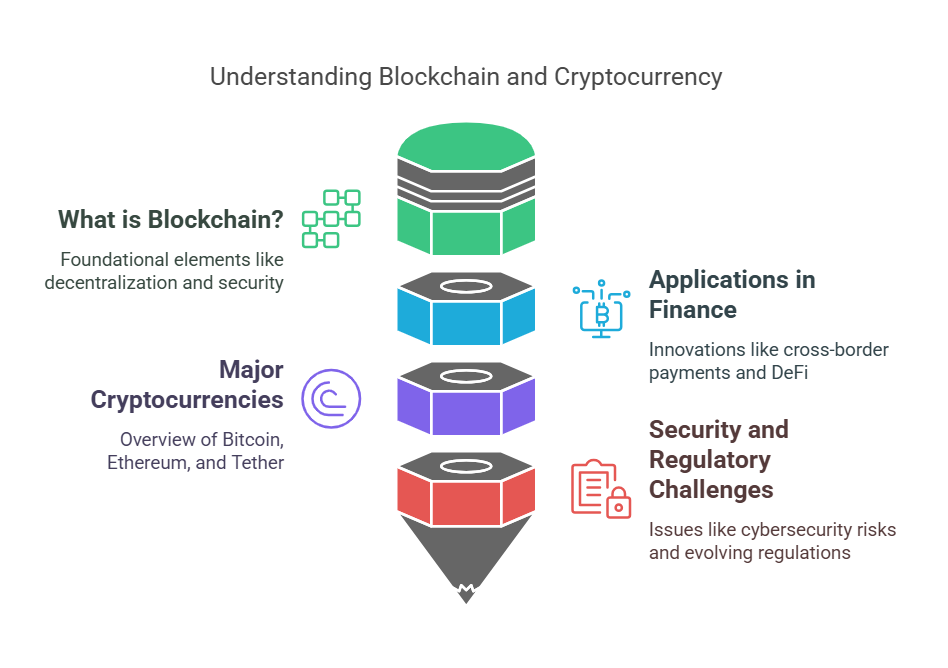
-
-
-
This lesson explores the key applications of digital finance, focusing on how financial technology (FinTech) is transforming payments and money transfers worldwide. Students will examine how mobile banking, contactless payments, and blockchain technology are reshaping financial transactions.
The lesson also covers innovations in cross-border payments, comparing traditional systems like SWIFT with blockchain-based solutions such as Ripple and Stellar. Additionally, we will discuss alternative financing models like crowdfunding and peer-to-peer lending, which provide new ways for businesses and individuals to access funding.
-
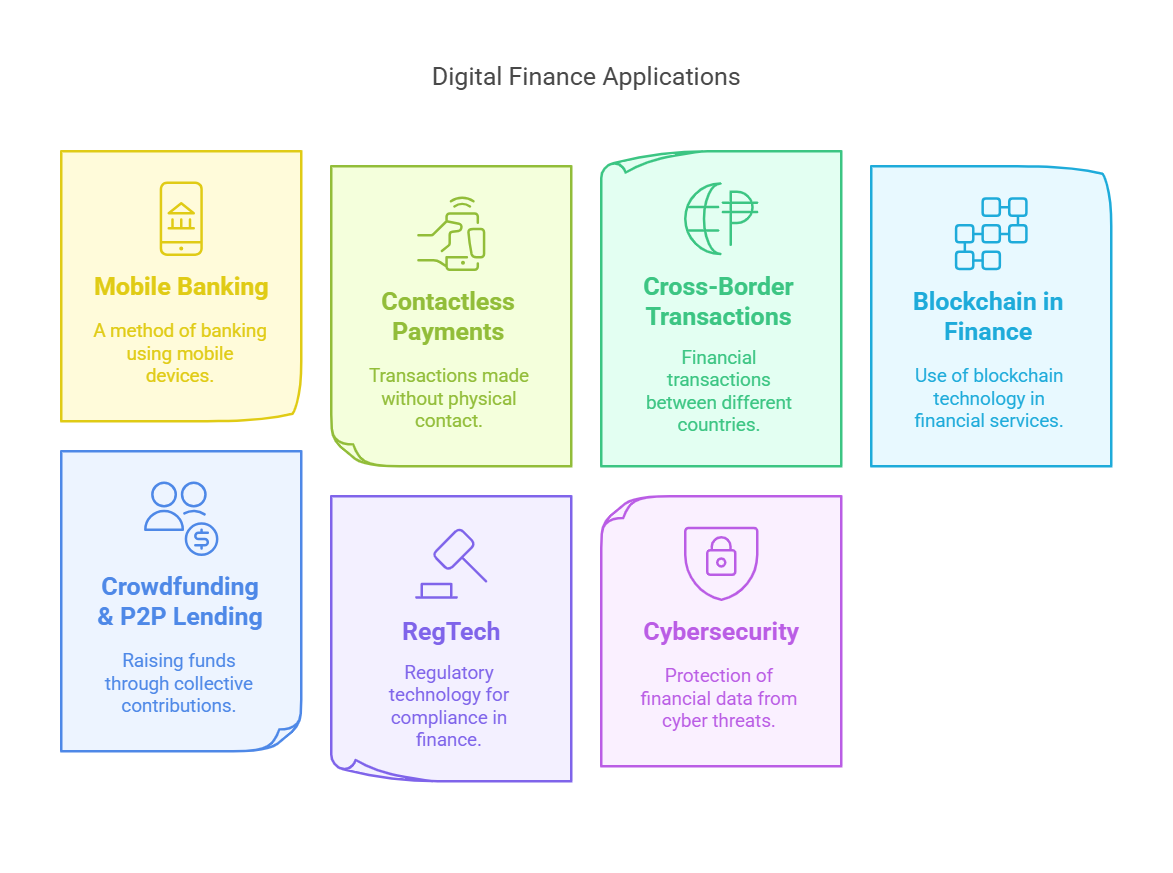
-
-
-
Students will learn how to apply economic models and tools to assess the feasibility, profitability, and market dynamics of FinTech innovations.
Key topics include cost-benefit analysis, market segmentation, network effects, and econometric modeling, which help stakeholders understand how FinTech startups grow and compete. The lesson also covers financial analysis techniques such as cash flow assessment, balance sheet evaluation, and profitability measurement, providing essential insights into the economic sustainability of FinTech firms.
-
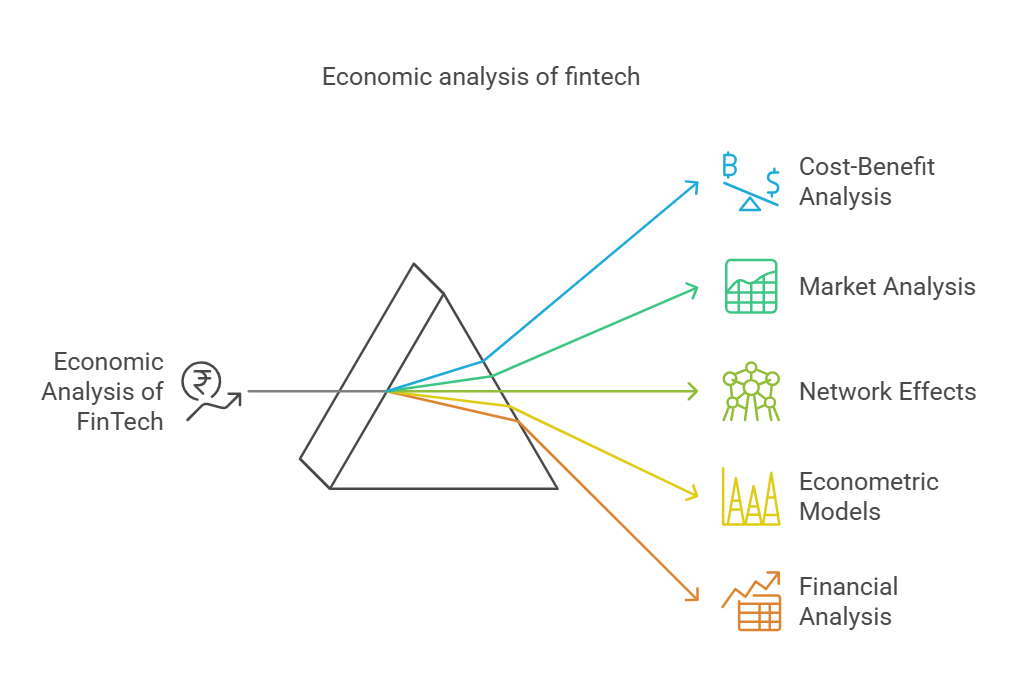
-
-
Lessons 5+6 : Financial and Economic Data Analysis Using Modern Technologies & Statistical Analysis in FinTech
-
This lesson explores the key analytical approaches used in FinTech: economic analysis, statistical analysis, and data-driven decision-making. Students will learn how financial institutions and technology firms use these techniques to assess risk, predict market trends, and optimize financial performance.
The lesson covers cost-benefit analysis, econometric models, statistical inference, and big data analytics. It also highlights the role of AI and machine learning in risk management, fraud detection, and financial forecasting.
By integrating these approaches, students will understand how FinTech companies analyze economic conditions, consumer behavior, and financial markets to make data-driven strategic decisions.
-
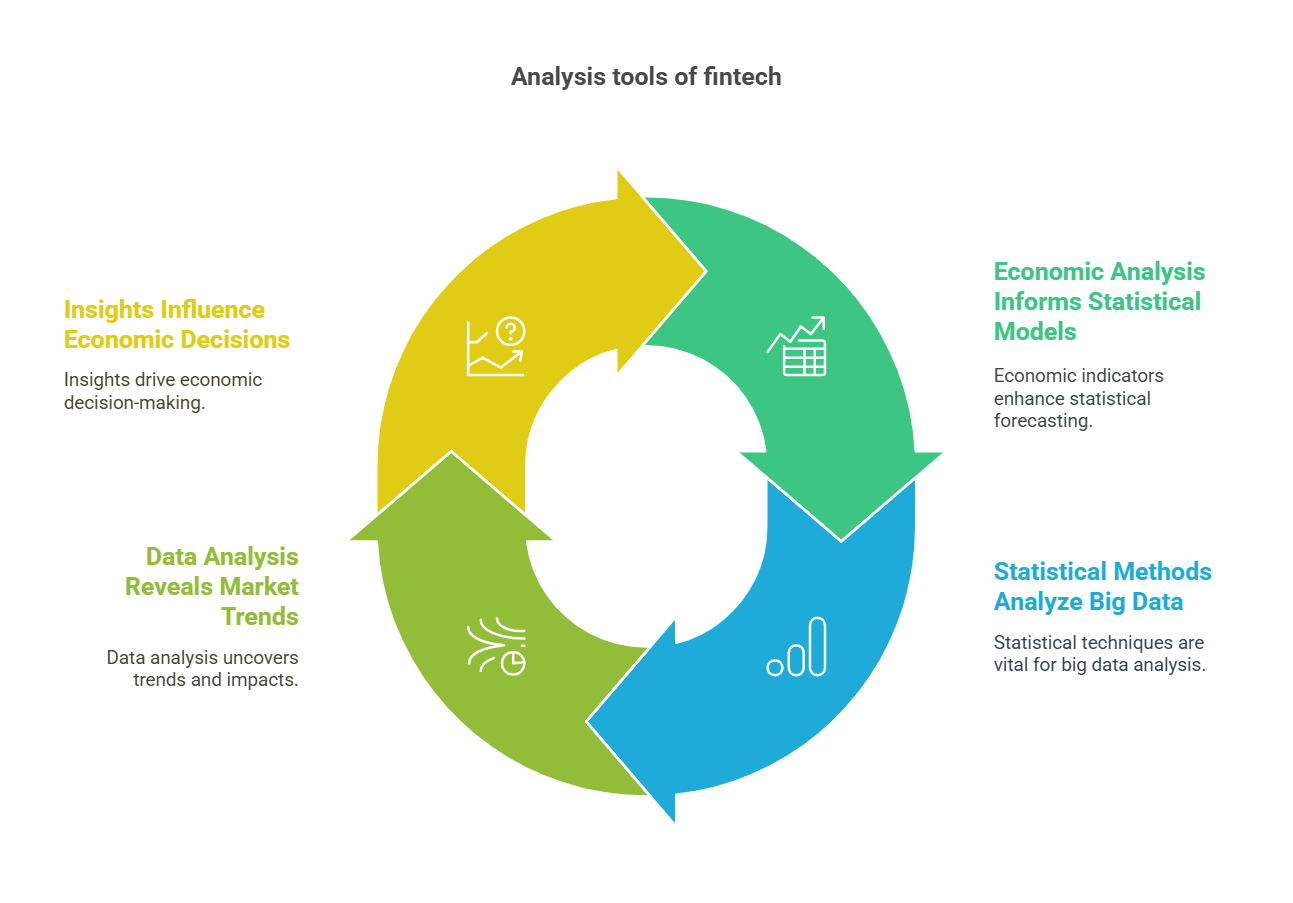
-
-
-
This lesson explores the critical role of cybersecurity and data protection in digital finance. As FinTech continues to grow, so do the risks associated with cyber threats, data breaches, and fraudulent activities.
Students will learn about major cybersecurity threats, including malware, phishing, ransomware, and social engineering. The lesson also covers best practices for protecting FinTech platforms, such as multi-factor authentication (MFA), data encryption, regular security audits, and compliance with financial regulations.
-
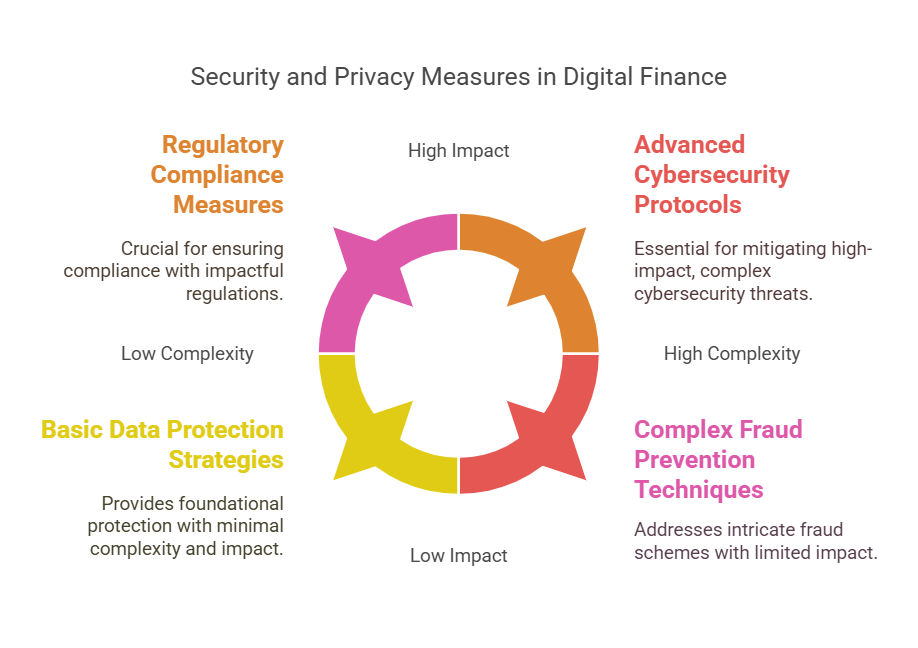
-
-
-
This lesson explores Insurance Technology (InsurTech) and how digital transformation is reshaping the insurance industry. Students will learn about the key technologies driving InsurTech, including Artificial Intelligence (AI), Big Data, Blockchain, and the Internet of Things (IoT), and their role in automating underwriting, detecting fraud, and improving risk assessment.
The lesson also covers modern insurance models, such as digital insurance platforms, peer-to-peer insurance, and on-demand coverage, which provide customers with flexibility, cost reduction, and enhanced user experiences.
-
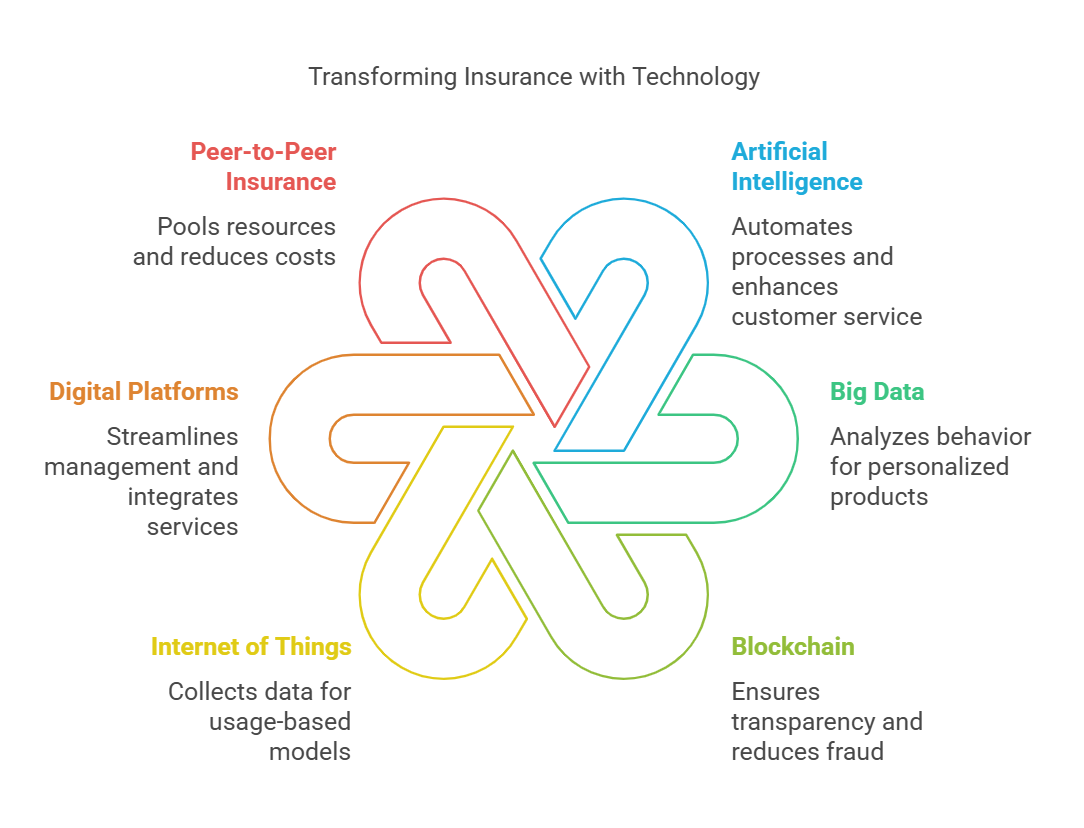
-
-
-
A collection of research papers, reports, and academic materials covering key topics in FinTech, blockchain, digital finance, and InsurTech. These resources will support your learning and deepen your understanding of financial technology applications
-
